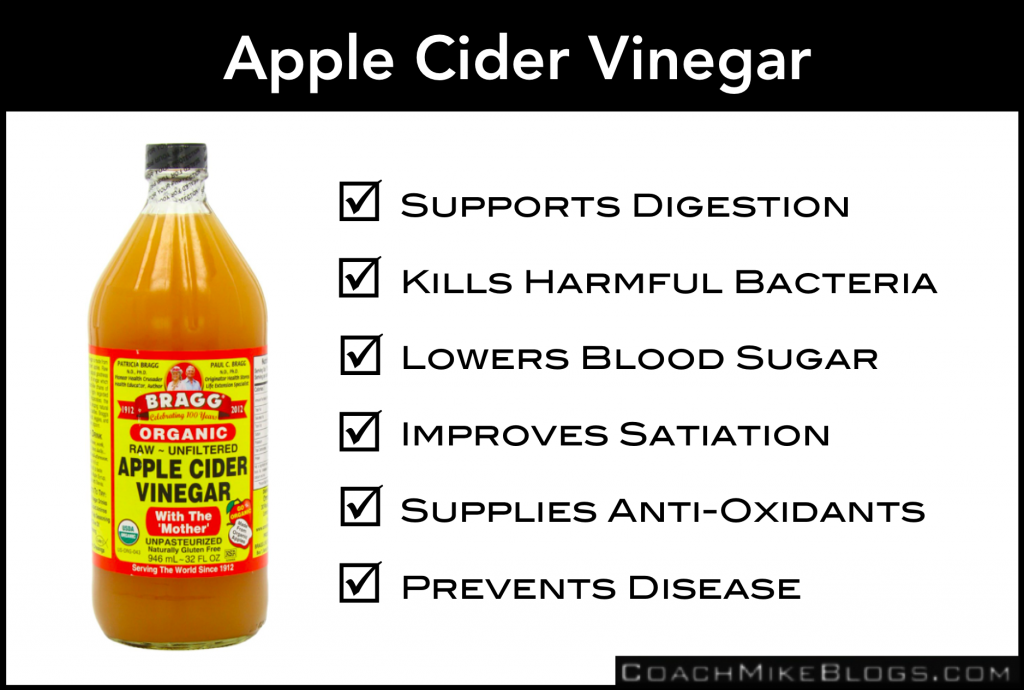Vinegar is to digestion, as fermented foods are to gut flora.
The ‘real food’ supplement that came well before pills and capsules.
Initially, vinegar was used as a food preservative, until it’s long-list of medicinal benefits were discovered. With some cultures (like the Chinese) using it as a sanitizer over 1000 years ago, and others using it as a go-to for treating wounds and ailments.
Sadly, we’ve lost sight of many of these traditional uses – especially when it comes to improving the strength and health of our gastrointestinal system. With most heading to the ginormous pharmacy to choose from 1 of 10 digestive aids, or making an appointment with their over-prescribing doc, instead of getting to the root and looking for alternative ways to address their issues.

As discussed in the past, antacids are a counterproductive approach to treating indigestion, and antibiotics may kill pathogens, but they also kill ‘healthy’ gut bugs. Leaving us prone to ‘bad’ bacterial overgrowth, by inhibiting the digestive juices needed to properly break down food, and destroying the beneficial flora that’s supposed to prevent it.
Vinegar, on the other hand, kills ‘harmful’ bacteria (like E. coli and Staphylococcus) and helps create the acidic environment we need to properly digest our food. Not only ensuring we can access the essential nutrients (in big hunks of meat), but preventing stalls that can lead to gastrointestinal discomfort and an increased risk of infection and overgrowth.
Vinegar has a positive impact on gut health because it’s anti-microbial. It helps to break down bad bacteria and feed the good.

Fortunately for us, the benefits of vinegar don’t stop there. And although ‘digestion’ is the main reason you should consume it, this other benefit is DEFINITELY a close second.
Vinegar is ‘anti-glycemic.’ Meaning it lowers the blood sugar response after meals (1, 2, 3, 4).
With some research suggesting that this is because it inhibits the complete digestion of carbohydrates (1, 2, 3, 4) and leads to a sustained blood sugar release (as opposed to a large bolus). While other studies seem to show an increased uptake of glucose into cells (1, 2, 3, 4, 5).
The latter being a more probable explanation, given that vinegar dosing is less pronounced in those with a high degree of insulin resistance (i.e. type 2 diabetics). And all observational signs pointing to ‘improved,’ not ‘inhibited’ digestion.
But either way, it means less of a glucose response after meals, and less insulin to stabilize blood sugar. Keeping you out of fat storage mode (elevated insulin), improving insulin sensitivity, and helping reduce your risk of the degenerative conditions associated with chronically elevated blood sugar and insulin.

Interestingly, vinegar also promotes a leaner, healthier physique by improving satiation (fullness) after meals (1, 2), and supplying a considerable dose of antioxidants (catechin, chlorogenic, epicatechin, gallic, and caffeic acids). With chlorogenic acid specifically, lowering our risk of heart disease helping the oxidation of LDL cholesterol particles (1, 2, 3).
“Polyphenols such as chlorogenic acid, which is present in high levels in apple cider vinegar, could inhibit oxidation of LDLs and improve health by preventing cardiovascular diseases.” Journal of Food Science, 2014
Rat studies have also demonstrated it’s ability to reduce cholesterol, blood pressure, and triglycerides (1, 2). And given it’s impact on blood sugar and insulin, it wouldn’t be outrageous to expect the same result in humans.

There’s also been specific vinegars, like Kurosu from Japan, showing promise for reducing the risk of certain cancers (colon, lung, breast, prostate, bladder). Which again, wouldn’t be a shocker given that oxidative stress and chronically elevated blood sugar are associated with disease progression.
However, we’ll stick to the main benefits for now, and focus on the main point of this article:
VINEGAR SHOULD BE CONSUMED DAILY!
And not just the minimal amounts you get from salad dressings, pickled foods, and condiments (ketchup, mustard, hot sauce, etc), but a daily DELIBERATE dose of vinegar. With a little swig of Apple Cider Vinegar after non-vinegar containing meals being the easiest way to accomplish this.
The Bragg’s Brand is my favorite because it’s ‘raw, unfiltered, organic, and unpasteurized’ and comes in a large 1L bottle.
I recommend starting with a small sip after your biggest meal of the day (usually dinner) and adding it to other meals when you see fit (higher-carb ones especially).
It will be sour and you will feel the heat as it travels down, but this is the fire we need in your belly for proper digestion!
I also recommend using it to brush your grill before BBQ’ing – as it supplies just as much non-stick as the oils (without the risk of oxidation), and helps clean-off and cut down on any ill-effects from the carcinogenic char that can form during cooking.
Stay Lean!
Coach Mike
RELATED ARTICLES:
More Antibiotics = Less Probiotics
Stop Taking Antacids For Heartburn & Reflux
Fermented Foods - The Better (& Cheaper) Probiotic
Beyond Live It NOT Diet! - Test Your Digestion (The HCL Test)
Asthma? Eczema? Headaches? Arthritis? Depression? Go With Your Gut!
But My Doctor NSAID To Take These - What Aspirin & Ibuprofen Are Really Doing

